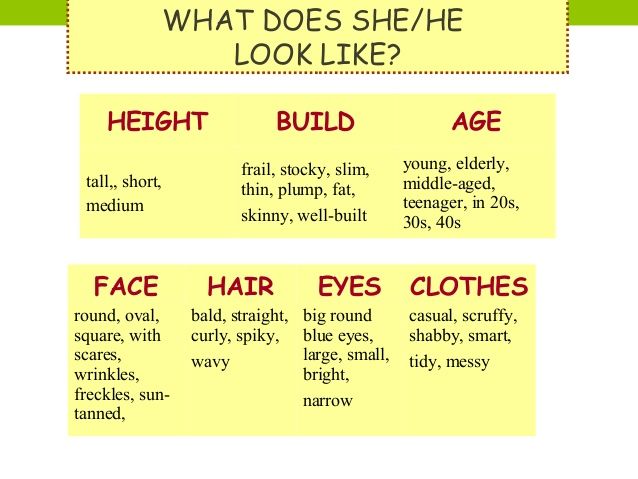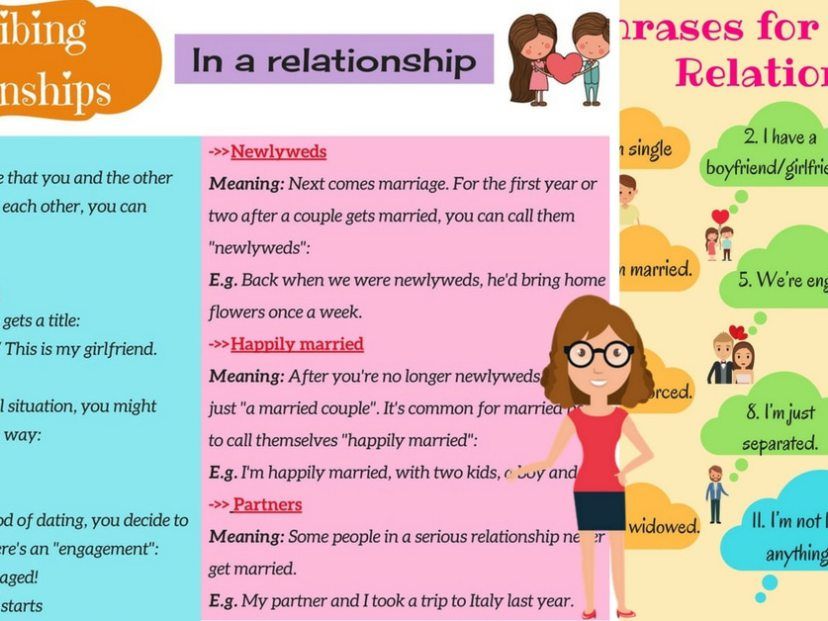How to get along with your daughter
How to Get Along with Your Adult Daughter
The bond between a mother and daughter is practically unbreakable. In fact, according to a study in The Journal of Family Issues, “Of all familial relationships, the mother-daughter one is most likely to remain important for both parties.” However, despite its importance, it is not studied as frequently as many of the other relationships in our lives. Now that you have made it through the rocky teen years and your little girl is all grown up, you may be wondering how to get along with your adult daughter.
Mother-daughter relationship therapist Rosjke Hasseldine says in Counseling Today that, “Mothers and daughters frequently tell me that they feel ashamed about their relationship difficulties. They feel that they “should” be able to get along because popular wisdom tells them that mothers and daughters are supposed to be close.” She adds that “This societal expectation makes mothers and daughters blame themselves for causing their relationship difficulties.
”
Hasseldine asserts that there are many societal factors that influence the mother-daughter relationship, including “life events, restrictive gender roles, unrealized career goals, and the expectation that women should sacrifice their needs in their caregiving role all shape how mothers and daughters view themselves and each other and how they communicate.” These factors can cause a number of issues, especially when it comes to mothers and daughters holding differing views on romantic relationships, marriage, parenting, and work-life balance.
Avoiding these relationship pitfalls is key to maintaining a healthy bond with your adult daughter. The following tips should ensure that your relationship with your daughter remains strong.
Table of Contents
Practice Non-Judgemental Listening
We all know how important it is to make people feel heard in any type of relationship. When it comes to mothers and daughters, it’s particularly crucial to foster open and honest communication by practicing non-judgemental listening. This means that when your daughter chooses to confide in you about something taking place in her life, try to understand her experience rather than impart your own onto the situation. It’s also important to make your daughter feel as though she has your support. So while you may not necessarily agree with every decision she makes, it’s not always necessary to express this disagreement. Making her feel as though you’re in her corner should be your primary focus.
This means that when your daughter chooses to confide in you about something taking place in her life, try to understand her experience rather than impart your own onto the situation. It’s also important to make your daughter feel as though she has your support. So while you may not necessarily agree with every decision she makes, it’s not always necessary to express this disagreement. Making her feel as though you’re in her corner should be your primary focus.
Open Up
In the interest of fostering open communication, consider practicing vulnerability and sharing your innermost thoughts and feelings with your daughter. While you may have kept these thoughts to yourself when she was a child, now that she is an adult, she can act as a confidante. Not to mention, letting her see and understand you better will inevitably improve your relationship by helping her to sympathize with your worldview.
Hold Your Criticism
Aim to give more compliments than critiques when speaking to your daughter. One of the issues that adult daughters report the most often is feeling criticized by their mothers. Whether it concerns her parenting style, her choice of boyfriend, or her hair color, your criticism is most likely unwelcome. It’s important to accept her decisions—even if they’re not the ones you would make.
One of the issues that adult daughters report the most often is feeling criticized by their mothers. Whether it concerns her parenting style, her choice of boyfriend, or her hair color, your criticism is most likely unwelcome. It’s important to accept her decisions—even if they’re not the ones you would make.
Accommodate Her Schedule
As your daughter enters adulthood, you may find yourself feeling disappointed at the amount of time she’s willing or able to commit to your relationship. Whether your daughter is a college student, a busy member of the workforce, or a new mother, she may be overwhelmed by her day-to-day responsibilities. Make it as easy as possible for the two of you to stay in touch or spend time together by accommodating her schedule as much as possible. Ask her when the best time is to catch up on the phone and offer to visit her rather than requesting that she come to you.
Foster Common Interests
Now that your daughter is an adult, you may share common hobbies and interests. Use these shared passions as a way to connect and build memories together. If, for example, you both love art, make a monthly plan to visit a museum or gallery together. If you both love to cook, suggest taking a cooking class or plan an ambitious meal to undertake together. While it’s important to maintain a parental role, that doesn’t mean you can’t also relate to one another as friends.
Use these shared passions as a way to connect and build memories together. If, for example, you both love art, make a monthly plan to visit a museum or gallery together. If you both love to cook, suggest taking a cooking class or plan an ambitious meal to undertake together. While it’s important to maintain a parental role, that doesn’t mean you can’t also relate to one another as friends.
Respect Her Boundaries
Boundaries play a key role in the parent-child relationship, no matter your children’s age. Communicate with your daughter about her desired boundaries when it comes to your level of communication, your relationship with her children, and the role you play in her life. It’s always important to ask before taking action. While you may assume your daughter would appreciate a surprise visit, for example, it might, in fact, cause her stress. Though your intentions are certainly positive, she might not perceive them as such.
Be Willing to Apologize
As your daughter gets older and becomes more reflective of her childhood and upbringing, she may express negative feelings about parenting decisions you made in the past. While hearing these criticisms is undoubtedly difficult, it’s important not to react defensively. It’s crucial to let her know that her feelings are valid. Then, apologize for any role you played in causing her pain. If you aren’t able to give her a level-headed response right away, thank her for sharing how she feels and let her know that you intend to reflect on what she said. These same recommendations apply to current conflicts as well as old wounds.
While hearing these criticisms is undoubtedly difficult, it’s important not to react defensively. It’s crucial to let her know that her feelings are valid. Then, apologize for any role you played in causing her pain. If you aren’t able to give her a level-headed response right away, thank her for sharing how she feels and let her know that you intend to reflect on what she said. These same recommendations apply to current conflicts as well as old wounds.
Treat Her Like an Adult
Ultimately, the most important thing is to treat your daughter like an adult. This transition may be hard, considering that—in your mind—she may still be a child. It’s essential to speak to her with respect. One trick to try is to imagine that you’re speaking to another young woman her age, be it a coworker or one of your daughter’s friends.
Hopefully, these tips will help you get along with your adult daughter. Now, help your husband out by sharing some insight on the father-daughter relationship.
Read Next:
How Mindfulness Can Help Relationships Thrive
Is Toxic Communication Ruining Your Relationship?
Did you like this article? Sign up (it's free!) and we'll send you great articles like this every week. Subscribe for free here.
29 Tips to Improve Your Mother
If you have a broken mother-daughter relationship, empathy, active listening, and working on yourself can help improve the connection.
Share on PinterestIt’s possible to heal a mother-daughter relationship that has drifted apart. (MoMo Productions/Getty Images)Human connections can be complex, and sometimes things happen that push people apart. Life can strain even the most significant bonds. The mother-daughter relationship is no exception.
Occasionally, differences between a mother and a daughter are irreconcilable. Other times, self-work, patience, and intentional effort may help heal and strengthen a broken mother-daughter relationship and yourself.
As a mom, not connecting with your daughter might be weighing on your heart. However, there are ways to work on your mother-daughter bond and open up spaces so your daughter feels more comfortable getting closer to you.
Be open-minded
Being heard and accepted is one of our greatest needs in relationships, says Kate Fish, licensed marriage and family therapist and owner of Graceful Therapy in Oswego, Illinois.
“When your daughter is opening up and sharing, be open-minded and nonjudgmental as much as possible. Ask questions and allow her to educate you about her experience, even if you already know the answer,” Fish says.
Emotional validation is critical to healing your relationship with your daughter.
Back her
As often as you can, take your daughter’s side. This can improve a mother-daughter relationship over time as she learns to trust and rely on you.
“There are plenty of other people out in the world that can play devil’s advocate. What we need more than a naysayer is someone to validate our experience and make us feel supported,” says Fish.
What we need more than a naysayer is someone to validate our experience and make us feel supported,” says Fish.
Practice reflective listening
Reflective listening involves paying special attention to the content and feelings your daughter is expressing when she talks. It’s about being emotionally available and letting the other person know they are understood.
“Show her that you’re listening and attuned by reflecting back what she is saying as she speaks,” says Fish.
Let her teach you
While the role of a mother can be about guiding and teaching, as your daughter becomes an adult, it’s important to allow her to also share knowledge with you, Fish says.
“Be open to learning new things from your daughter as a way of reminding her that you are in a two-way relationship and not just there to form her,” she says.
Give her space
Connecting also requires disconnection.
If you don’t ever spend time apart, Fish says, you may become unable to appreciate time together.
Depending on your relationship, taking a few days or weeks off from seeing or talking with each other can help make the time you reconnect even better.
Did you know?
According to a study published in the Journal of Neuroscience, mothers and daughters share a similarity in the brain that might influence how they handle their relationship.
The part of the brain (corticolimbic circuitry) that regulates emotion is more similar between mothers and daughters than it is between mothers and sons, fathers and daughters, or fathers and sons.
This may imply that moms can relate to their daughters more, and at the same time, it may explain why moms and daughters might challenge each other more.
Your mom may be part of your identity, whether you have remained close or distant during your life. If you’ve decided to heal your mother-daughter relationship, consider a few ways to open the doors to reconnecting.
Appreciate the role she’s played
Acknowledge and appreciate your mom’s role in your life and how she has helped you along the way.
This includes essential things like providing food and shelter to lessons she taught you.
Your mom may want to hear about all these things you cherish.
Show her gratitude
Fish suggests practicing and expressing gratitude for the traditions and values you have learned from your mother.
You can show gratitude by telling your mom verbally, by writing her a note, or giving her a gift.
Let your mom continue to influence you
Showing your mom that you still appreciate her input and knowledge about circumstances and situations you encounter can help her feel needed in your life.
For instance, turning to her for advice on a career choice, living situation, relationship, or parenting your own children can make her feel valued.
Let her be part of your family
While it can be hard for your mom to see you focus on your own family, allowing her to be part of your children’s lives can help bring you closer.
This may go beyond inviting her to hang around. You could also include her in family decisions, vacations, and important celebrations.
You could also include her in family decisions, vacations, and important celebrations.
Dedicate time to continue traditions with your mom
While life as an adult can be busy, scheduling quality time to be with your mom may be an important step to getting closer.
Inexpensive options to consider might include having her over for dinner, organizing a picnic, going on a walk together, or helping her run errands.
Let go of shame
Learning to let go of the shame that comes with having complex challenges within relationships can help you heal, says Gina Moffa, a psychotherapist based in New York City.
“Society bombards us with commercials and movies that show mothers and daughters as best friends, which can lead to shame and confusion for those struggling with the desire for closeness versus the reality of sharp edges within the relationship,” she says.
Only you know the particular situations in your relationship. What you’ve experienced and felt is valid. If you want to heal yourself and your relationship with your daughter, it may be a good idea to focus on what’s to come instead of what’s in the past.
If you want to heal yourself and your relationship with your daughter, it may be a good idea to focus on what’s to come instead of what’s in the past.
Break tradition
Some women may carry down generations of modeling that keeps them in traditions of not communicating their own needs or not acknowledging what those needs are. Moffa says understanding your own needs, fears, traumas, and unspoken desires can help create healthy patterns and dialogue.
“We have to be careful not to communicate in projection, as this is a way of missing the mark and only closing the possibility of deeper connection,” says Moffa.
Remember you were your daughter’s age once
To let your daughter in when interactions happen, Fish suggests putting yourself in your daughter’s shoes at her age.
“Remember that your daughter, much like you at her age, needs to learn to be her own person by experiencing and developing her own relationships. It’s not an expression of what you did wrong, but a sign that you’ve done something right if your daughter ‘leaves the nest,’” she says.
Know you are good enough
If you grew up with a dismissive mother or are hurt by past relationship experiences, Moffa says trying to understand the origin of the pain can help in not projecting it onto your mom.
She explains that most daughters may be balancing two things: how to be close to their mothers and how to be independent of them.
If a mother doesn’t behave in a loving and warm way or behaves dismissively or critically, a daughter may look for ways to connect while never feeling good enough.
“In this case, it’s vital for the daughter to be validated in some way in order to feel worthy enough for healthy connections in her life,” Moffa says.
Primary bonds impact adult attachment styles. It may be helpful to remember you’re not defined by your relationships — not even the one with your mother.
Empathize with your mom’s needs
Consider giving your mother grace and acknowledging that even moms have their own needs and limitations.
Your mom may have her own hurtful experiences that she is healing from, says Fish.
It may be a good idea to remember everyone’s doing the best they can with the resources at hand.
Avoid blame
You may feel inclined to sometimes blame your mom for strains in your mother-daughter relationship. Other times, you may point fingers at yourself. But learning to understand and communicate each other’s needs in a way that does not blame either of you can lead to a more honest connection.
“And therefore, the possibility of those needs being met or a connection to be created or strengthened,” says Moffa.
If either one of you has taken the first step to reconnect, these activities may help ease tension during those first times together.
- Recreate a favorite memory or tradition together, such as having afternoon tea, making a family recipe, or doing each other’s hair.
- Share a desire and a need each of you has for your relationship and take turns without interrupting or judging the answer of the other.

- Take a few minutes to talk about or write down a few things you both have in common and build on that. For example, if you both like crafting, you could create a quilt together or if you enjoy sports, you may want to go to a game together.
- Create a scenario where you have to be on a team together and get to use skills in a “you and me against the world, not each other” kind of way. This could be a board game against other family members or something more elaborate like an escape room.
- Volunteer together at a local shelter or organization you both are passionate about.
The following questions can help you understand each other deeper. You could save an afternoon together where you sit down in a park or at home and initiate conversation.
- What was the most important moment in your life?
- What fears did you have in childhood that you have carried with you?
- What has it been like being my mother/daughter so far?
- What are some things you really appreciate about me?
- What do you think is the most important thing for me to know as you?
- What do you most wish for in this relationship?
- What do you most fear about this relationship?
- If you could change one thing in your life, what would it be?
“These sorts of open questions allow for each to be human, honest, and real with one another. The rules have to be set that there is no negative feedback welcome in this activity, as it is a time for each to be open with the other,” says Moffa.
The rules have to be set that there is no negative feedback welcome in this activity, as it is a time for each to be open with the other,” says Moffa.
It may be time to seek professional help if it is too hard to have a conversation without escalating or shutting down, says Fish.
Moffa notes that therapy can help heal a mother-daughter relationship if trauma, loss, or abuse occurred in the family or if mothers or daughters live with mental health conditions.
“No matter the reason, it’s time to seek help if both the mother and daughter wish to be connected but simply have too much trouble finding solid ground in their relationship,” Moffa says.
If you decide to take this step to heal your broken mother-daughter relationship, these resources may help:
- American Psychiatric Association’s Find a Psychiatrist tool
- American Psychological Association’s Find a Psychologist tool
- Asian Mental Health Collective’s therapist directory
- Association of Black Psychologists’ Find a Psychologist tool
- National Alliance on Mental Illness Helplines and Support Tools
- National Institute of Mental Health’s Helpline Directory
- National Queer and Trans Therapists of Color Network
- Inclusive Therapists
How to improve your mother-daughter relationship depends on the specific challenges you face. In any case, there are ways to strengthen your bond on your own or with professional help. Empathy, patience, listening without judging, and spending alone time can help.
In any case, there are ways to strengthen your bond on your own or with professional help. Empathy, patience, listening without judging, and spending alone time can help.
How to fix the relationship between mother and daughter in terms of psychology?
Today I will tell you how you can improve the relationship between mother and daughter and what are the reasons for negative feelings between them.
"A child is a guest in your house: feed him, teach him and let him go" - the essence of this Indian proverb is obvious, but, alas, it is very difficult for many parents to understand it. Someone perceives their child as property, someone instills a sense of unrequited debt and shame.
The connection between mother and daughter is a bond that leaves a significant imprint on both women . This article on our website lifeinheart.com will help you figure out why mothers sometimes don't like their daughters, why a daughter can hate her mother, and what to do to improve relationships?
Contents
Mother's role in shaping personality
What is motherhood? Unconditional love? Self-sacrifice? Lifetime liability? – This comprehensive word includes all these concepts . After all, the formation of the daughter's personality, her perception of herself and the world around her largely depends on the behavior of the parent. So, what does a mother mean to a little girl? nine0003
After all, the formation of the daughter's personality, her perception of herself and the world around her largely depends on the behavior of the parent. So, what does a mother mean to a little girl? nine0003
- A sense of security. Mom is the person in front of whom the baby should not be afraid to be herself. Clumsy, with tattered knees, love for "boyish" cartoons and sports. A zone free from judgment and the need to adapt will allow her to form her own vision of the world through trial and error.
- The right to be a child. A girl, next to whom there is an adult, responsible and mature personality, can calmly do her “childish things”: play with dolls, play pranks, walk and learn. Not being burdened by adult responsibilities and knowledge is something every child is entitled to. nine0024
- An example of social interaction. If a mother on the playground constantly gossips about her neighbors, expresses her dissatisfaction with her husband, this will be fixed in her daughter as a priori correct and acceptable behavior.
 That is why young parents should pay as much attention to introspection as possible.
That is why young parents should pay as much attention to introspection as possible. - An example of a wife. According to statistics, more than 50% of childhood injuries were received due to the forced contemplation of parental scandals. Every dissatisfied grimace of the mother, a quarrel behind closed doors and an unflattering review of the father as the head of the family is deposited, if not in the memory, then in the subconscious of the baby. nine0024
- The ability to love and be loved. Observing her mother's behavior, a girl answers herself many important questions. Do the parents love each other or just live together? What actions express her warm feeling? Is she expecting something in return, or are her actions disinterested? Does she accept signs of attention or pushes them away?
“Mom is the first word, the main word in every life…” – Do you remember this song? With the realization of the influence that the mother's position in life has on the formation of her daughter as an integral, separate person, it becomes even more meaningful. nine0003
nine0003
If you are not sure of your own viability as a mother, seek the help of a professional psychologist. A specialist will help you identify and resolve family conflicts.
Mother-daughter relationship depending on age stages
For 9 months, mother and daughter are in complete symbiosis: they are an inseparable whole. But this does not mean at all that, along with the cutting of the umbilical cord, this connection ceases: a smooth and natural rejection begins, due to self-consciousness:
- From birth to one and a half years - absolute dependence. The mother is fully responsible for the well-being and safety of the baby. Gender doesn't matter. The natural maternal instinct, laid down by nature, came into force.
- From one and a half to three years - awareness of one's own needs. A baby at this age begins to realize her own desires that do not fit into the schedule or what her mother offers her.
 Phrases such as “give”, “I want / don’t want”, “I will / I won’t”, etc. appear in the lexicon. The girl begins to feel the need to make independent decisions, but at the same time she acts with an eye on her mother’s reaction. The mother, in turn, experiences a permanent feeling of concern for her child - all her efforts are aimed at protecting the life and health of the child. nine0024
Phrases such as “give”, “I want / don’t want”, “I will / I won’t”, etc. appear in the lexicon. The girl begins to feel the need to make independent decisions, but at the same time she acts with an eye on her mother’s reaction. The mother, in turn, experiences a permanent feeling of concern for her child - all her efforts are aimed at protecting the life and health of the child. nine0024 - Three to seven years - identification period. The girl begins to identify herself with her mother, realizing her belonging to the female sex and adopting typical gender habits. At this stage, parents should give the child a little more free will and teach all the necessary self-care skills. Around the same time, the girl has her first friends, personal preferences and secrets.
- Puberty is an artificial conflict between mother and daughter. nine0008 It is no longer a child that appears before the parents, but not yet a woman. What was previously taken for granted, taken for granted, begins to be rethought and criticized.
 The mother must get used to the idea that she will have to re-build relationships and learn to negotiate. The main thing to do is to maintain trust.
The mother must get used to the idea that she will have to re-build relationships and learn to negotiate. The main thing to do is to maintain trust. - Youth is the stabilization of relations between mother and daughter. An independent personality appears before the parents, with their own formed interests and views on life. Her role as a child ends naturally. She has the right to privacy, independent choice of a life partner and sexual partners, and the mother can only recognize this. nine0024
- Mother becomes a grandmother. The news that the daughter will soon become a mother herself brings women very close. For the first time in a long time, the expectant mother frankly needs maternal guidance, and she, in turn, gladly shares her life experience. The psychological and physical state of the expectant mother during pregnancy and after the baby is born depends very much on the support of others, including the mother and spouse.
- Old age - The relationship between mother and adult daughter is heating up again.
 Realizing their own weakness and loss of authority, many older women become capricious. Their behavior is in many ways similar to teenage rebellion. Now an adult daughter must adapt and look for an approach to her mother.
Realizing their own weakness and loss of authority, many older women become capricious. Their behavior is in many ways similar to teenage rebellion. Now an adult daughter must adapt and look for an approach to her mother.
Many adult daughters, faced with the senile helplessness of their mothers, plunge into a depressive state. If you encounter this, do not hesitate to ask a professional for help. Also, don't judge yourself for asking for medical help. nine0017
- Mother's death - completion of separation. A daughter goes through a complex process of psychological separation from her mother and self-awareness as the main woman in the family.
All of the above stages are the natural sequence , which, unfortunately, often has many vital nuances that darken the relationship between two women who are close to each other.
At every stage of life, the relationship between a mother and her daughter affects bothThe main reasons for the difficult relationship with the mother of an adult daughter
Relationships between daughter and mother do not always go smoothly. Let's look at the most common causes of disagreement.
Let's look at the most common causes of disagreement.
Competition
No matter how strange it may sound, but female, albeit unconscious competition between mother and daughter is a very common cause for conflict.
Help! Most often, competition occurs in families where the mother gave birth too early, or several generations of women live in the family (grandmother, mother, daughter). nine0017
It lies in the fact that the mother is trivially jealous of her daughter, albeit subconsciously. She sees how her baby is gradually turning into a beautiful, young girl, and this phenomenon once again reminds her of her age. However, the train of thought can be turned in the opposite direction. The mother remembers what she was like at her daughter's age (sociable, flirtatious, slim, attractive, married, having children) and projects this onto her daughter, who is different from her both externally and internally. Because of this, the woman feels annoyed, believing that her child is not being realized properly. nine0007 A mother's envy of her daughter may not be voiced directly, but it always burdens and creates a tense atmosphere in the family where no one can relax .
nine0007 A mother's envy of her daughter may not be voiced directly, but it always burdens and creates a tense atmosphere in the family where no one can relax .
What to do?
In this case, it is necessary to show wisdom and empathy. Put yourself in your opponent's shoes and feel the pressure of unsolicited advice. If you are a mother, show loyalty and caution, recognize the daughter's right to her own life path. If you are a daughter, set personal boundaries and start working on your own self-esteem. As a rule, the degree of pressure from older relatives decreases when they see that you have clear life position .
Unwillingness to admit one's mistakes
An ill-mannered, impudent, arrogant and uncontrollable girl who does everything in defiance is nothing but a mirror reflection of her parent's actions. At one time, the mother did not pay due attention to education, focusing on meeting material needs (housing, education, food, clothes) and as a result, she faces a completely unfamiliar girl with well-formed interests, which cannot be influenced by scandals and remarks due to lack of authority. nine0003
nine0003
Or the opposite situation arises: the daughter, who grew up in a dysfunctional family, fears a repeat of her fate and does everything to oppose herself to her mother, which looks like actions “out of spite” and deliberate ignorance. The daughter does not hate her mother, but considers her an example of how life is not worth living.
What to do?
First of all, it is necessary to devote time to introspection . Do not try to make up for lost time in a short time - try to get to know each other. No need to break a person for yourself - a mother who humiliates and insults an adult daughter under no circumstances will be perceived as a wise mentor. nine0003
Non-recognition of personal boundaries
Of course, it is extremely important to know your child, but it is not permissible to arrange shadowing of him and deprive him of even minimal personal space. A mother who reads a personal diary, turns out her pockets, checks her browser history and personal correspondence is perceived as a threat and untrustworthy person.
In most of these cases, one outcome: the child learns to lie early, to lead a double life, and at the first opportunity leaves the native walls to feel at ease. And also often an adult daughter does not communicate with her mother, except as necessary and in general phrases. nine0003
What to do?
You should remember yourself in your youth and understand that at this age there are also individual desires and needs that often run counter to the expectations of the family. It should be understood that espionage and gross violation of personal boundaries have not yet aroused a desire to get close to anyone.
Active search
A young mother in her prime of life and years has every right to a happy personal life. Just do not forget about the child and his perception of reality. A girl who is in the care of her grandparents, while her mother is trying to get along with a new object of sighing, feels abandoned and unnecessary. As a result: jealousy, protest, attracting attention to yourself in the most radical ways. nine0003
nine0003
Often a mother, inspired by a new relationship, pays attention to a child from her first marriage only in an emergency (when he screams, cries, gets hurt, etc.). Often this leads to children's self-harm (self-harm) and depressive states.
What to do?
It is worth understanding that only husbands can be ex-husbands - children will remain with you forever. The daughter also has the right to her own opinion about your new chosen one - she is not obliged to love him. nine0007 The task of adults in this case is to provide the child with a sense of security . If you are a daughter who grew up in such a family, work through your emotions with a psychologist. Try to look at your mother as a simple person. Recognize her right to be wrong.
Humiliation between mother and daughter and other negative relationships. How to avoid it?An imposed sense of duty
“I fed you, taught you, brought you up, and you are an ungrateful egoist!” - This phrase can be heard by a daughter who does not act the way her mother expected. There are many options: she started the wrong career, started the wrong hobby, started dating the wrong man. The parent feels as if she has put a significant layer of life on the altar of education, and has not received the desired return for this. nine0003
There are many options: she started the wrong career, started the wrong hobby, started dating the wrong man. The parent feels as if she has put a significant layer of life on the altar of education, and has not received the desired return for this. nine0003
As a result: the mother manipulates the adult daughter, constantly reminding her that she is indebted to her. Or, even worse, he plays tantrums, fainting, heart attacks and other ailments so that his daughter cancels all her plans. It also happens that a mother insults and humiliates her daughter, thereby offending and devaluing all her achievements.
What to do?
It is important to realize that the birth of a child is your desire, not his. An adult daughter does not have to give up her own plan to meet your expectations. If you are in the position of a daughter, start living separately at the first opportunity. Do not torture yourself if the mother now and then makes it clear that you have abandoned and betrayed her, but do not forget to visit your parents as often as possible, show them signs of attention and, of course, control their health. I also recommend watching an article about effective methods of getting rid of old grievances. nine0003
I also recommend watching an article about effective methods of getting rid of old grievances. nine0003
Five destructive types of relationships between mother and daughter
Unfortunately, even in seemingly prosperous families, things often don't go so smoothly. The reason for this is the wrong model of mother's behavior. Psychologists distinguish five types of relationships that ultimately lead to disagreement.
- Daughter as a personal psychologist. Trust between relatives is wonderful, but not in the case when all family troubles fall on a little girl. It often happens that a mother voices all her feelings to her daughter: regarding a difficult financial situation, difficult relationships with her father, dislike for some relatives, etc. And the baby has no other choice but to listen. As a result, the mother, without realizing it, robs her daughter of a part of her childhood, depriving her of a sense of comfort and security. nine0024
- Dictatorship.
 “Mom knows best”, “I have already decided everything for you”, “You will do as I told you” – typical attitudes of mother-dictator. The reason for this behavior is the oppressive burden of the mistakes of the past. It seems that the mother does not love her daughter, but only tries to live her life “on a clean copy”. Any manifestation of personal desires is suppressed in the bud. As a result, the adult daughter does not want to communicate with her mother and tries to reduce the number of visits to the minimum possible so as not to relive that very feeling of insignificance. nine0024
“Mom knows best”, “I have already decided everything for you”, “You will do as I told you” – typical attitudes of mother-dictator. The reason for this behavior is the oppressive burden of the mistakes of the past. It seems that the mother does not love her daughter, but only tries to live her life “on a clean copy”. Any manifestation of personal desires is suppressed in the bud. As a result, the adult daughter does not want to communicate with her mother and tries to reduce the number of visits to the minimum possible so as not to relive that very feeling of insignificance. nine0024 - Domestic use. “The future mistress should not sit idly by”, “No one will marry you, such a clumsy”, “You must give me the money you earn” - these phrases are clear signs of domestic exploitation. A mother raises her daughter with the mindset that you are worth something only if you sacrifice everything for the common good. These girls grow up to be women who can endure domestic violence for years.
 A husband can morally suppress his wife, perceive her as a servant, and she will tolerate such an attitude towards herself, for the reason that in childhood she was given the installation - this is how a family should look like. nine0024
A husband can morally suppress his wife, perceive her as a servant, and she will tolerate such an attitude towards herself, for the reason that in childhood she was given the installation - this is how a family should look like. nine0024 - Mother boss . The boss mother differs from the mother-dictator in that she does not insist on a certain life path, but only controls the correctness of the decisions made by her daughter. Figuratively speaking, she, as a boss, requires a constant report on the work done, plans for the near and far future, and sets deadlines for their implementation. This often results in the daughter never learning to make decisions like an adult and becoming nervous about not getting approval or guidance from older relatives. nine0024
- Stranger mother. There may be many reasons for this: the need to provide for the family alone, attempts to improve their personal lives, etc. If the parent is constantly absent and practically does not take part in the life and upbringing of her daughter, their relationship will not develop in the best way: in life only occasionally and demand love and attention to yourself, which, of course, will have nowhere to come from.
 As a result: the mother's jealousy of her daughter or relatives that replaced her as a guardian. nine0024
As a result: the mother's jealousy of her daughter or relatives that replaced her as a guardian. nine0024
Why does a mother hate her daughter? Psychology and causes
No child deserves maternal dislike, and even more so - hatred. To understand the nature of a mother's hatred of her daughter, we will analyze the main theses.
Reasons why a mother may hate her daughterOften the cause of hostility of a young mother to a newborn daughter is postpartum depression. This is a serious condition that needs to be corrected together with a psychotherapist.
So what are the reasons the most important woman in a girl's life might hate her?
- She did not have an example of harmonious relationships. The first experience of love is received in childhood, attitudes towards relationships - too. If a woman has not had emotional intimacy with her own mother, she will not know how to have it with her own daughter.
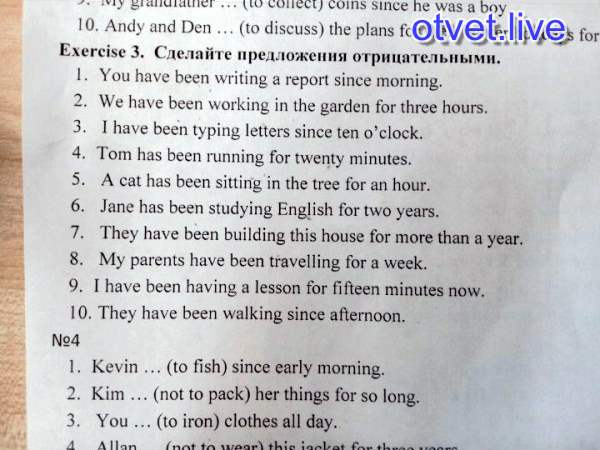 She will be confused and scared, which will cause her coldness to be perceived as hatred.
She will be confused and scared, which will cause her coldness to be perceived as hatred. - Daughter is an unplanned/unwanted child. nine0008 The woman was a victim of circumstances through her own fault: she did not want to become a mother, but contraception failed her, and then her husband or relatives pressed her, forcing her to give birth. Sometimes the answer to the question why a mother hates her daughter is absurd: because she wanted a son!
- The daughter resembles her father, who is not around . A woman is forced every day to endure next to her a copy of the man who betrayed her, which only causes irritation. These emotions are especially pronounced when the baby inherits not only the appearance, but also the habits of her father. nine0024
- The mother has a mental disorder disturbing the perception of reality. Depression, schizophrenia, neurosis.
- Her ideal picture of the world has collapsed.
 Unfortunately, many women have a very mediocre idea of motherhood as such. After all, the phrase "I want a child" sounds much more often than "I want to be a mother." That is, the appearance of a baby is perceived rather as an acquisition, a week of return. In addition, many women use their pregnancy as a means of strengthening relationships, which does not always work. nine0024
Unfortunately, many women have a very mediocre idea of motherhood as such. After all, the phrase "I want a child" sounds much more often than "I want to be a mother." That is, the appearance of a baby is perceived rather as an acquisition, a week of return. In addition, many women use their pregnancy as a means of strengthening relationships, which does not always work. nine0024 - A mother is jealous of her adult daughter. It also happens that a mother, instead of being happy for her accomplished daughter, experiences all-consuming envy. She realizes that her "best years" were spent on raising children, and her daughter, instead of following in her footsteps, lives for her own pleasure.
How to move from hate to love?Thrown in the hearts "I hate you!" not the same as true hatred. A mother is just a person who cannot always keep emotions under control. It is possible to talk about real hostility only if coldness, neglect and contempt are felt everywhere. nine0003
Hatred of mother to daughter.
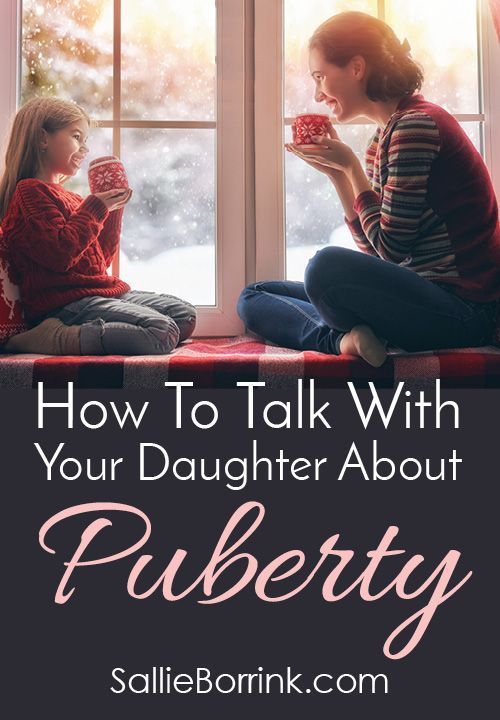 Exit psychology
Exit psychology We have figured out why a mother may not love her daughter - now we will try to understand what the victim of circumstances should do. If you recognize yourself as an unloved daughter, the following guide to action will help you not to burden an already difficult situation:
- Do not fall for provocations. The mother will look for confirmation of her beliefs in your words and actions - "My child is bad and that's why." Don't respond to attacks. nine0024
- Don't try to prove something . Succeeding to spite someone is a road that leads nowhere. You will not get satisfaction, and in the end, the mother will only become even more annoyed.
- Understand that you cannot influence other people's emotions . You cannot correct her internal discomfort - she must do it herself.
- Learn to defend your own boundaries and interests. If you feel that your character is too soft to face a tyrant, your best bet is to live your own life separately at the earliest opportunity.
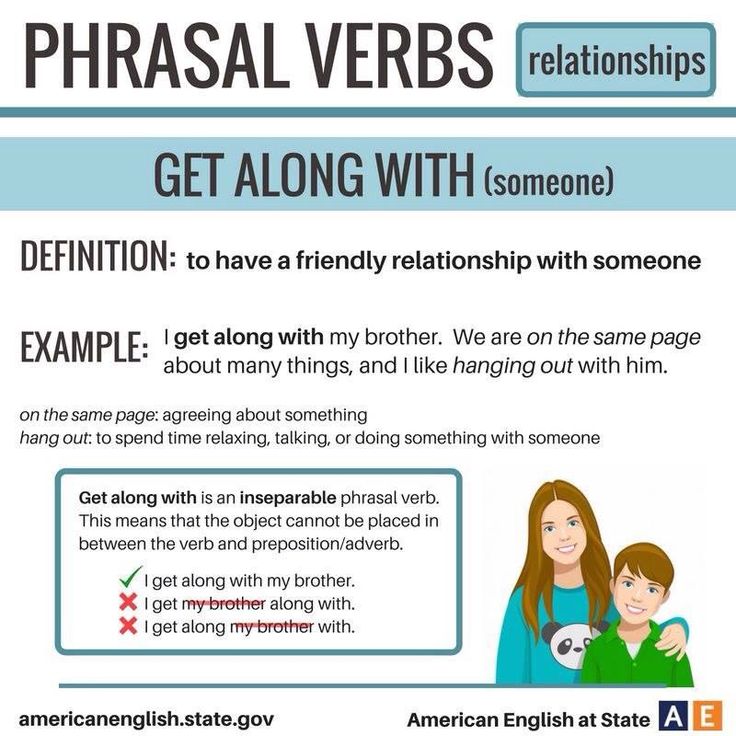 nine0024
nine0024 - Demonstrate your autonomy. You can act and make decisions on your own - the mother must understand and accept this. Be persistent and do not give up, even if the mother will resist in every possible way with your desire to be independent from her.
Adult daughter's hatred of her mother. How to forgive and let go?
Hatred is a common reaction to indifference, coldness, and detachment. Women who feel dislike for their own mother have many social difficulties. They do not understand how to build friendships, how to base relationships with the opposite sex, and, moreover, how to raise their own children. nine0003
Men are much more likely than women to experience indelible hatred of their mother. Women, on the other hand, tend to look for an excuse and forgive, especially if they themselves have already become mothers.
An unhealthy relationship with the mother can be dealt with using the following methods.
Breaking up a relationship
As soon as you have the opportunity, leave your father's house and start an independent life. Resist the entreaties to stay and the intimidation that you will not succeed. nine0007 Increase distance if necessary and limit communication to short phone calls. It is likely that during the separation, the mother will thaw.
Working with a psychotherapist
The main melting point of mental health is: "If you think you need to go to a psychologist, then you don't." The specialist will help you understand your feelings, find and eliminate old, childhood traumas.
A mother-daughter relationship is established at the very beginningGetting to know another point of view
Put yourself in your mother's shoes . Recreate in your imagination her life from childhood to our days. What kind of people do you have to deal with? What hardships to experience? Who showed you the most sympathy and care? This exercise will help you develop a sense of healthy empathy and analyze events from a different perspective.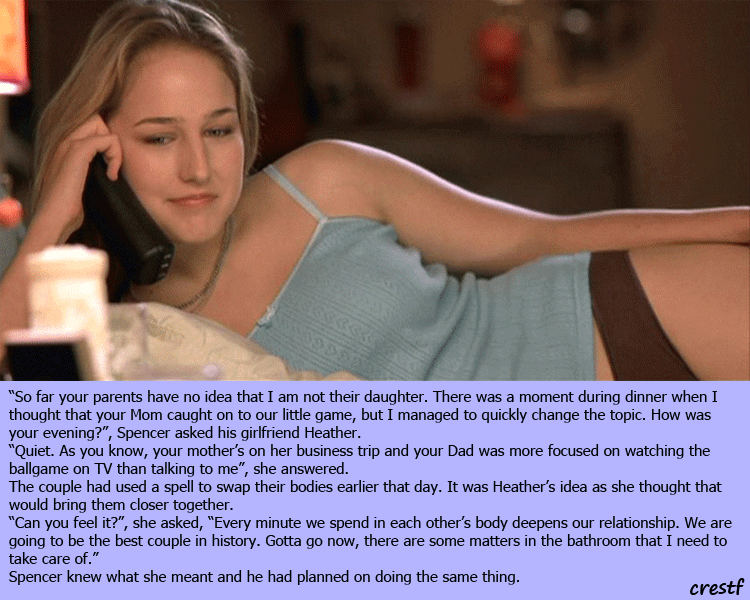
Thank you list
Sit down at your desk and take an hour of your time to write a thank you list to your mother. nine0007 Remember all the moments when her actions warmed your soul . This will help you be more patient with her.
Refusal of idealization
Every girl has ideas about an ideal family. It is based on the life experiences of other people, seen in films and even literary images of "exemplary mothers." But more often than not, such patterns are too flat and unviable. Accept your mother as she is . Ultimately, she is just a person with her own flaws and weaknesses. nine0003
Forgiveness list
Sit down at the table, focus, and write a few sentences in a column that will begin with the words “I forgive you for ...”, where instead of an ellipsis, what is relevant in your particular case.
Now let's talk about what not to do in this case:
- You shouldn't take revenge on your mother.
 The thirst for revenge is a painful condition that forces one to commit rash acts. All that awaits you in the end is an indelible feeling of shame. nine0024
The thirst for revenge is a painful condition that forces one to commit rash acts. All that awaits you in the end is an indelible feeling of shame. nine0024 - Don't look for a "lifeline" in marriage. By marrying "the first person you meet" you do not solve your problems, you only shift the responsibility for your own life to a man. If your spouse is just a way to escape from your parental home, be prepared for the fact that your relationship will inevitably deteriorate.
Conclusion
The mother-daughter relationship is the prototype of most important social and mental constructs. Among them are self-esteem, self-love and self-esteem, the ability to build relationships. Alas, the past cannot be changed, just as you cannot change your mother. But you can try to change yourself and start a new life without the burden of old grievances. nine0003
With love. Maria Shakti.
How to fix the relationship between mother and daughter from the point of view of psychology?
Today I will tell you how you can improve the relationship between mother and daughter and what are the reasons for negative feelings between them.
"A child is a guest in your house: feed him, teach him and let him go" - the essence of this Indian proverb is obvious, but, alas, it is very difficult for many parents to understand it. Someone perceives their child as property, someone instills a sense of unrequited debt and shame. nine0003
The connection between mother and daughter is a bond that leaves a significant imprint on both women . This article on our website lifeinheart.com will help you figure out why mothers sometimes don't like their daughters, why a daughter can hate her mother, and what to do to improve relationships?
Contents
Mother's role in shaping personality
What is motherhood? Unconditional love? Self-sacrifice? Lifetime liability? – This is the all-encompassing word includes all of these . After all, the formation of the daughter's personality, her perception of herself and the world around her largely depends on the behavior of the parent. So, what does a mother mean to a little girl?
So, what does a mother mean to a little girl?
- A sense of security. Mom is the person in front of whom the baby should not be afraid to be herself. Clumsy, with tattered knees, love for "boyish" cartoons and sports. A zone free from judgment and the need to adapt will allow her to form her own vision of the world through trial and error. nine0024
- The right to be a child. A girl, next to whom there is an adult, responsible and mature personality, can calmly do her “childish things”: play with dolls, play pranks, walk and learn. Not being burdened by adult responsibilities and knowledge is something every child is entitled to.
- An example of social interaction. If a mother on the playground constantly gossips about her neighbors, expresses her dissatisfaction with her husband, this will be fixed in her daughter as a priori correct and acceptable behavior. That is why young parents should pay as much attention to introspection as possible.
 nine0024
nine0024 - An example of a wife. According to statistics, more than 50% of childhood injuries were received due to the forced contemplation of parental scandals. Every dissatisfied grimace of the mother, a quarrel behind closed doors and an unflattering review of the father as the head of the family is deposited, if not in the memory, then in the subconscious of the baby.
- The ability to love and be loved. Observing her mother's behavior, a girl answers herself many important questions. Do the parents love each other or just live together? What actions express her warm feeling? Is she expecting something in return, or are her actions disinterested? Does she accept signs of attention or pushes them away? nine0024
“Mom is the first word, the main word in every life…” – Do you remember this song? With the realization of the influence that the mother's position in life has on the formation of her daughter as an integral, separate person, it becomes even more meaningful.
If you are not sure of your own viability as a mother, seek help from a professional psychologist. A specialist will help you identify and resolve family conflicts. nine0017
Mother-daughter relationship depending on age stages
For 9 months, mother and daughter are in complete symbiosis: they are an inseparable whole. But this does not mean at all that this connection ceases with the cutting of the umbilical cord: a smooth and natural rejection begins, due to self-consciousness:
- From birth to one and a half years - absolute dependence. The mother is fully responsible for the well-being and safety of the baby. Gender doesn't matter. The natural maternal instinct, laid down by nature, came into force. nine0024
- From one and a half to three years - awareness of one's own needs. A baby at this age begins to realize her own desires that do not fit into the schedule or what her mother offers her.
 Phrases such as “give”, “I want / don’t want”, “I will / I won’t”, etc. appear in the lexicon. The girl begins to feel the need to make independent decisions, but at the same time she acts with an eye on her mother’s reaction. The mother, in turn, experiences a permanent feeling of concern for her child - all her efforts are aimed at protecting the life and health of the child. nine0024
Phrases such as “give”, “I want / don’t want”, “I will / I won’t”, etc. appear in the lexicon. The girl begins to feel the need to make independent decisions, but at the same time she acts with an eye on her mother’s reaction. The mother, in turn, experiences a permanent feeling of concern for her child - all her efforts are aimed at protecting the life and health of the child. nine0024 - Three to seven years - identification period. The girl begins to identify herself with her mother, realizing her belonging to the female sex and adopting typical gender habits. At this stage, parents should give the child a little more free will and teach all the necessary self-care skills. Around the same time, the girl has her first friends, personal preferences and secrets.
- Puberty is an artificial conflict between mother and daughter. nine0008 It is no longer a child that appears before the parents, but not yet a woman. What was previously taken for granted, taken for granted, begins to be rethought and criticized.
 The mother must get used to the idea that she will have to re-build relationships and learn to negotiate. The main thing to do is to maintain trust.
The mother must get used to the idea that she will have to re-build relationships and learn to negotiate. The main thing to do is to maintain trust. - Youth is the stabilization of relations between mother and daughter. An independent personality appears before the parents, with their own formed interests and views on life. Her role as a child ends naturally. She has the right to privacy, independent choice of a life partner and sexual partners, and the mother can only recognize this. nine0024
- Mother becomes a grandmother. The news that the daughter will soon become a mother herself brings women very close. For the first time in a long time, the expectant mother frankly needs maternal guidance, and she, in turn, gladly shares her life experience. The psychological and physical state of the expectant mother during pregnancy and after the baby is born depends very much on the support of others, including the mother and spouse.
- Old age - The relationship between mother and adult daughter is heating up again.
 Realizing their own weakness and loss of authority, many older women become capricious. Their behavior is in many ways similar to teenage rebellion. Now an adult daughter must adapt and look for an approach to her mother.
Realizing their own weakness and loss of authority, many older women become capricious. Their behavior is in many ways similar to teenage rebellion. Now an adult daughter must adapt and look for an approach to her mother.
Many adult daughters, faced with the senile helplessness of their mothers, plunge into a depressive state. If you encounter this, do not hesitate to ask a professional for help. Also, don't judge yourself for asking for medical help. nine0017
- Mother's death - completion of separation. A daughter goes through a complex process of psychological separation from her mother and self-awareness as the main woman in the family.
All of the above stages are the natural sequence , which, unfortunately, often has many vital nuances that darken the relationship between two women who are close to each other.
At every stage of life, the relationship between a mother and her daughter affects bothThe main reasons for the difficult relationship with the mother of an adult daughter
Relationships between daughter and mother do not always go smoothly. Let's look at the most common causes of disagreement.
Let's look at the most common causes of disagreement.
Competition
No matter how strange it may sound, but female, albeit unconscious competition between mother and daughter is a very common cause for conflict.
Help! Most often, competition occurs in families where the mother gave birth too early, or several generations of women live in the family (grandmother, mother, daughter). nine0017
It lies in the fact that the mother is trivially jealous of her daughter, albeit subconsciously. She sees how her baby is gradually turning into a beautiful, young girl, and this phenomenon once again reminds her of her age. However, the train of thought can be turned in the opposite direction. The mother remembers what she was like at her daughter's age (sociable, flirtatious, slim, attractive, married, having children) and projects this onto her daughter, who is different from her both externally and internally. Because of this, the woman feels annoyed, believing that her child is not being realized properly. nine0007 A mother's envy of her daughter may not be voiced directly, but it always burdens and creates a tense atmosphere in the family where no one can relax .
nine0007 A mother's envy of her daughter may not be voiced directly, but it always burdens and creates a tense atmosphere in the family where no one can relax .
What to do?
In this case, it is necessary to show wisdom and empathy. Put yourself in your opponent's shoes and feel the pressure of unsolicited advice. If you are a mother, show loyalty and caution, recognize the daughter's right to her own life path. If you are a daughter, set personal boundaries and start working on your own self-esteem. As a rule, the degree of pressure from older relatives decreases when they see that you have clear life position .
Unwillingness to admit one's mistakes
An ill-mannered, impudent, arrogant and uncontrollable girl who does everything in defiance is nothing but a mirror reflection of her parent's actions. At one time, the mother did not pay due attention to education, focusing on meeting material needs (housing, education, food, clothes) and as a result, she faces a completely unfamiliar girl with well-formed interests, which cannot be influenced by scandals and remarks due to lack of authority. nine0003
nine0003
Or the opposite situation arises: the daughter, who grew up in a dysfunctional family, fears a repeat of her fate and does everything to oppose herself to her mother, which looks like actions “out of spite” and deliberate ignorance. The daughter does not hate her mother, but considers her an example of how life is not worth living.
What to do?
First of all, it is necessary to devote time to introspection . Do not try to make up for lost time in a short time - try to get to know each other. No need to break a person for yourself - a mother who humiliates and insults an adult daughter under no circumstances will be perceived as a wise mentor. nine0003
Non-recognition of personal boundaries
Of course, it is extremely important to know your child, but it is not permissible to arrange shadowing of him and deprive him of even minimal personal space. A mother who reads a personal diary, turns out her pockets, checks her browser history and personal correspondence is perceived as a threat and untrustworthy person.
In most of these cases, one outcome: the child learns to lie early, to lead a double life, and at the first opportunity leaves the native walls to feel at ease. And also often an adult daughter does not communicate with her mother, except as necessary and in general phrases. nine0003
What to do?
You should remember yourself in your youth and understand that at this age there are also individual desires and needs that often run counter to the expectations of the family. It should be understood that espionage and gross violation of personal boundaries have not yet aroused a desire to get close to anyone.
Active search
A young mother in her prime of life and years has every right to a happy personal life. Just do not forget about the child and his perception of reality. A girl who is in the care of her grandparents, while her mother is trying to get along with a new object of sighing, feels abandoned and unnecessary. As a result: jealousy, protest, attracting attention to yourself in the most radical ways. nine0003
nine0003
Often a mother, inspired by a new relationship, pays attention to a child from her first marriage only in an emergency (when he screams, cries, gets hurt, etc.). Often this leads to children's self-harm (self-harm) and depressive states.
What to do?
It is worth understanding that only husbands can be ex-husbands - children will remain with you forever. The daughter also has the right to her own opinion about your new chosen one - she is not obliged to love him. nine0007 The task of adults in this case is to provide the child with a sense of security . If you are a daughter who grew up in such a family, work through your emotions with a psychologist. Try to look at your mother as a simple person. Recognize her right to be wrong.
Humiliation between mother and daughter and other negative relationships. How to avoid it?An imposed sense of duty
“I fed you, taught you, brought you up, and you are an ungrateful egoist!” - This phrase can be heard by a daughter who does not act the way her mother expected. There are many options: she started the wrong career, started the wrong hobby, started dating the wrong man. The parent feels as if she has put a significant layer of life on the altar of education, and has not received the desired return for this. nine0003
There are many options: she started the wrong career, started the wrong hobby, started dating the wrong man. The parent feels as if she has put a significant layer of life on the altar of education, and has not received the desired return for this. nine0003
As a result: the mother manipulates the adult daughter, constantly reminding her that she is indebted to her. Or, even worse, he plays tantrums, fainting, heart attacks and other ailments so that his daughter cancels all her plans. It also happens that a mother insults and humiliates her daughter, thereby offending and devaluing all her achievements.
What to do?
It is important to realize that the birth of a child is your desire, not his. An adult daughter does not have to give up her own plan to meet your expectations. If you are in the position of a daughter, start living separately at the first opportunity. Do not torture yourself if the mother now and then makes it clear that you have abandoned and betrayed her, but do not forget to visit your parents as often as possible, show them signs of attention and, of course, control their health. I also recommend watching an article about effective methods of getting rid of old grievances. nine0003
I also recommend watching an article about effective methods of getting rid of old grievances. nine0003
Five destructive types of relationships between mother and daughter
Unfortunately, even in seemingly prosperous families, things often don't go so smoothly. The reason for this is the wrong model of mother's behavior. Psychologists distinguish five types of relationships that ultimately lead to disagreement.
- Daughter as a personal psychologist. Trust between relatives is wonderful, but not in the case when all family troubles fall on a little girl. It often happens that a mother voices all her feelings to her daughter: regarding a difficult financial situation, difficult relationships with her father, dislike for some relatives, etc. And the baby has no other choice but to listen. As a result, the mother, without realizing it, robs her daughter of a part of her childhood, depriving her of a sense of comfort and security. nine0024
- Dictatorship.
 “Mom knows best”, “I have already decided everything for you”, “You will do as I told you” – typical attitudes of mother-dictator. The reason for this behavior is the oppressive burden of the mistakes of the past. It seems that the mother does not love her daughter, but only tries to live her life “on a clean copy”. Any manifestation of personal desires is suppressed in the bud. As a result, the adult daughter does not want to communicate with her mother and tries to reduce the number of visits to the minimum possible so as not to relive that very feeling of insignificance. nine0024
“Mom knows best”, “I have already decided everything for you”, “You will do as I told you” – typical attitudes of mother-dictator. The reason for this behavior is the oppressive burden of the mistakes of the past. It seems that the mother does not love her daughter, but only tries to live her life “on a clean copy”. Any manifestation of personal desires is suppressed in the bud. As a result, the adult daughter does not want to communicate with her mother and tries to reduce the number of visits to the minimum possible so as not to relive that very feeling of insignificance. nine0024 - Domestic use. “The future mistress should not sit idly by”, “No one will marry you, such a clumsy”, “You must give me the money you earn” - these phrases are clear signs of domestic exploitation. A mother raises her daughter with the mindset that you are worth something only if you sacrifice everything for the common good. These girls grow up to be women who can endure domestic violence for years.
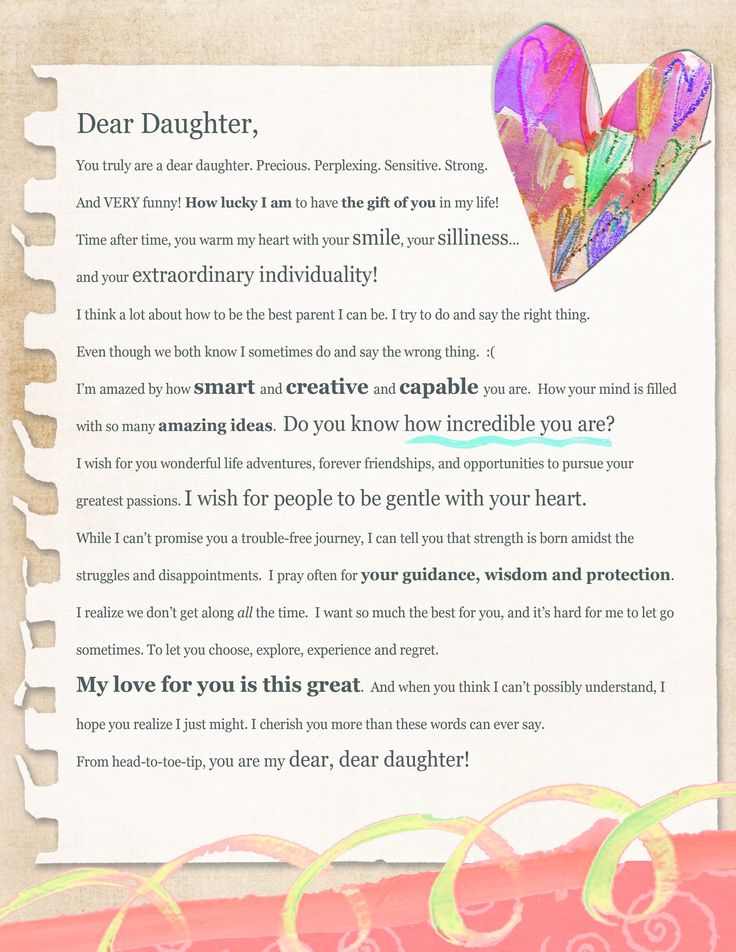 A husband can morally suppress his wife, perceive her as a servant, and she will tolerate such an attitude towards herself, for the reason that in childhood she was given the installation - this is how a family should look like. nine0024
A husband can morally suppress his wife, perceive her as a servant, and she will tolerate such an attitude towards herself, for the reason that in childhood she was given the installation - this is how a family should look like. nine0024 - Mother boss . The boss mother differs from the mother-dictator in that she does not insist on a certain life path, but only controls the correctness of the decisions made by her daughter. Figuratively speaking, she, as a boss, requires a constant report on the work done, plans for the near and far future, and sets deadlines for their implementation. This often results in the daughter never learning to make decisions like an adult and becoming nervous about not getting approval or guidance from older relatives. nine0024
- Stranger mother. There may be many reasons for this: the need to provide for the family alone, attempts to improve their personal lives, etc. If the parent is constantly absent and practically does not take part in the life and upbringing of her daughter, their relationship will not develop in the best way: in life only occasionally and demand love and attention to yourself, which, of course, will have nowhere to come from.
 As a result: the mother's jealousy of her daughter or relatives that replaced her as a guardian. nine0024
As a result: the mother's jealousy of her daughter or relatives that replaced her as a guardian. nine0024
Why does a mother hate her daughter? Psychology and causes
No child deserves maternal dislike, and even more so - hatred. To understand the nature of a mother's hatred of her daughter, we will analyze the main theses.
Reasons why a mother may hate her daughterOften the cause of hostility of a young mother to a newborn daughter is postpartum depression. This is a serious condition that needs to be corrected together with a psychotherapist.
So what are the reasons the most important woman in a girl's life might hate her?
- She did not have an example of harmonious relationships. The first experience of love is received in childhood, attitudes towards relationships - too. If a woman has not had emotional intimacy with her own mother, she will not know how to have it with her own daughter.
 She will be confused and scared, which will cause her coldness to be perceived as hatred.
She will be confused and scared, which will cause her coldness to be perceived as hatred. - Daughter is an unplanned/unwanted child. nine0008 The woman was a victim of circumstances through her own fault: she did not want to become a mother, but contraception failed her, and then her husband or relatives pressed her, forcing her to give birth. Sometimes the answer to the question why a mother hates her daughter is absurd: because she wanted a son!
- The daughter resembles her father, who is not around . A woman is forced every day to endure next to her a copy of the man who betrayed her, which only causes irritation. These emotions are especially pronounced when the baby inherits not only the appearance, but also the habits of her father. nine0024
- The mother has a mental disorder disturbing the perception of reality. Depression, schizophrenia, neurosis.
- Her ideal picture of the world has collapsed.
 Unfortunately, many women have a very mediocre idea of motherhood as such. After all, the phrase "I want a child" sounds much more often than "I want to be a mother." That is, the appearance of a baby is perceived rather as an acquisition, a week of return. In addition, many women use their pregnancy as a means of strengthening relationships, which does not always work. nine0024
Unfortunately, many women have a very mediocre idea of motherhood as such. After all, the phrase "I want a child" sounds much more often than "I want to be a mother." That is, the appearance of a baby is perceived rather as an acquisition, a week of return. In addition, many women use their pregnancy as a means of strengthening relationships, which does not always work. nine0024 - A mother is jealous of her adult daughter. It also happens that a mother, instead of being happy for her accomplished daughter, experiences all-consuming envy. She realizes that her "best years" were spent on raising children, and her daughter, instead of following in her footsteps, lives for her own pleasure.
How to move from hate to love?Thrown in the hearts "I hate you!" not the same as true hatred. A mother is just a person who cannot always keep emotions under control. It is possible to talk about real hostility only if coldness, neglect and contempt are felt everywhere. nine0003
Hatred of mother to daughter.
 Exit psychology
Exit psychology We have figured out why a mother may not love her daughter - now we will try to understand what the victim of circumstances should do. If you recognize yourself as an unloved daughter, the following guide to action will help you not to burden an already difficult situation:
- Do not fall for provocations. The mother will look for confirmation of her beliefs in your words and actions - "My child is bad and that's why." Don't respond to attacks. nine0024
- Don't try to prove something . Succeeding to spite someone is a road that leads nowhere. You will not get satisfaction, and in the end, the mother will only become even more annoyed.
- Understand that you cannot influence other people's emotions . You cannot correct her internal discomfort - she must do it herself.
- Learn to defend your own boundaries and interests. If you feel that your character is too soft to face a tyrant, your best bet is to live your own life separately at the earliest opportunity.
 nine0024
nine0024 - Demonstrate your autonomy. You can act and make decisions on your own - the mother must understand and accept this. Be persistent and do not give up, even if the mother will resist in every possible way with your desire to be independent from her.
Adult daughter's hatred of her mother. How to forgive and let go?
Hatred is a common reaction to indifference, coldness, and detachment. Women who feel dislike for their own mother have many social difficulties. They do not understand how to build friendships, how to base relationships with the opposite sex, and, moreover, how to raise their own children. nine0003
Men are much more likely than women to experience indelible hatred of their mother. Women, on the other hand, tend to look for an excuse and forgive, especially if they themselves have already become mothers.
An unhealthy relationship with the mother can be dealt with using the following methods.
Breaking up a relationship
As soon as you have the opportunity, leave your father's house and start an independent life. Resist the entreaties to stay and the intimidation that you will not succeed. nine0007 Increase distance if necessary and limit communication to short phone calls. It is likely that during the separation, the mother will thaw.
Working with a psychotherapist
The main melting point of mental health is: "If you think you need to go to a psychologist, then you don't." The specialist will help you understand your feelings, find and eliminate old, childhood traumas.
A mother-daughter relationship is established at the very beginningGetting to know another point of view
Put yourself in your mother's shoes . Recreate in your imagination her life from childhood to our days. What kind of people do you have to deal with? What hardships to experience? Who showed you the most sympathy and care? This exercise will help you develop a sense of healthy empathy and analyze events from a different perspective.
Thank you list
Sit down at your desk and take an hour of your time to write a thank you list to your mother. nine0007 Remember all the moments when her actions warmed your soul . This will help you be more patient with her.
Refusal of idealization
Every girl has ideas about an ideal family. It is based on the life experiences of other people, seen in films and even literary images of "exemplary mothers." But more often than not, such patterns are too flat and unviable. Accept your mother as she is . Ultimately, she is just a person with her own flaws and weaknesses. nine0003
Forgiveness list
Sit down at the table, focus, and write a few sentences in a column that will begin with the words “I forgive you for ...”, where instead of an ellipsis, what is relevant in your particular case.
Now let's talk about what not to do in this case:
- You shouldn't take revenge on your mother.




